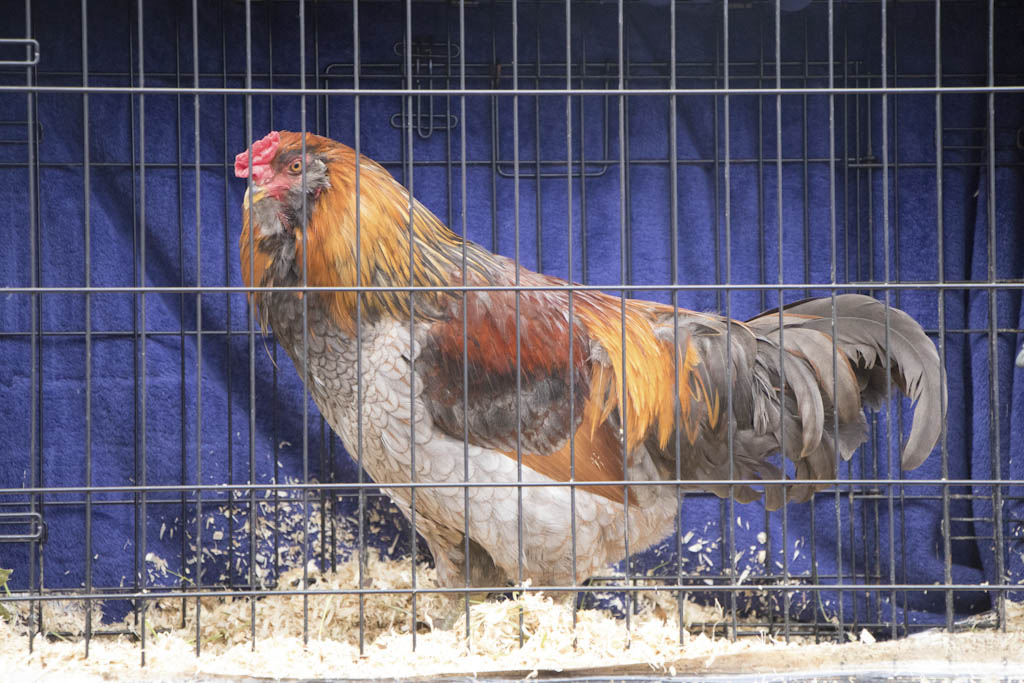Princeton has joined the growing number of New Jersey towns that permit residents to keep chickens in their backyard, thanks to the Princeton Council’s approval of an ordinance that allows them to do so.
With very little comment from the audience, the Princeton Council signed off on an ordinance at its March 9 meeting that sets the minimum standards for residents who want to raise chickens in their backyard.
Hopewell Township adopted an ordinance in 2011 that allows residents to keep chickens in their back yard. Lawrence Township followed suit in 2016 when it also adopted an ordinance that allows chickens to be kept in a resident’s back yard.
Although Princeton residents have been raising chickens in their backyards for years, the new Municipality of Princeton – created when the former Princeton Borough and the former Princeton Township consolidated – did not have an ordinance to permit the practice.
The former Princeton Township ordinances addressed commercial farming, but did not define the practice of keeping backyard chickens. Similarly, the former Princeton Borough’s ordinances addressed domesticated animals, but did not define the practice of keeping backyard poultry.
When the ordinance was introduced at the Princeton Council’s Feb. 24 meeting, Princeton Councilwoman Mia Sacks said that while “I am not a ‘chicken person’ myself, some of my absolute favorite people in the community are ‘chicken people.’ I know how hard they worked on this [ordinance].”
The ordinance that was approved at the council’s March 9 meeting grew out of a resolution adopted by the Princeton Environmental Commission in December 2018 in support of Princeton residents who were keeping chickens in their backyards.
Proponents said chickens provide pest control by eating ticks and bugs, and they also provide weed control by eating the weeds. The hens provide a constant supply of fresh eggs.
The newly adopted ordinance sets out minimum lot sizes, chicken coop sizes, and side yard and rear yard setbacks. It allows residents to keep hens, but not roosters. Also, residents may not sell eggs.
If the resident is a tenant, he or she must get permission from the property owner before raising chickens in the back yard. There is an annual $20 fee for a license to keep backyard chickens.
The minimum lot size to raise chickens in the backyard is 5,000 square feet. A 5,000-square-foot lot would allow the resident to keep two chickens. A 10,000-square-foot lot would allow the resident to keep three chickens.
At 15,000 square feet, a resident could keep four chickens, and at 30,000 square feet, a maximum of six chickens would be allowed. A 60,000-square-foot lot would allow up to eight chickens to be kept by the resident.
The chickens must be kept in a chicken coop with an enclosed run. The chicken coop may not exceed 100 square feet, and it must be at least five feet from the property line and 15 feet away from the house.
The chickens may roam outside the chicken coop in an enclosed “run” in the rear or side yard if the area outside the chicken coop is fenced in. The chickens must have access to grass or dirt areas.
“This really was the work of many hands. I am thrilled to have this (ordinance) in front of us,” Princeton Councilwoman Eve Niedergang said as she prepared to vote on the ordinance.
Niedergang praised the Princeton Environmental Commission and residents Karen Zemble and Jenny Ludmer, who both sit on the commission, for their work on the ordinance. She also thanked Princeton Health Officer Jeffrey Grosser and Animal Control Officer Jim Ferry.

